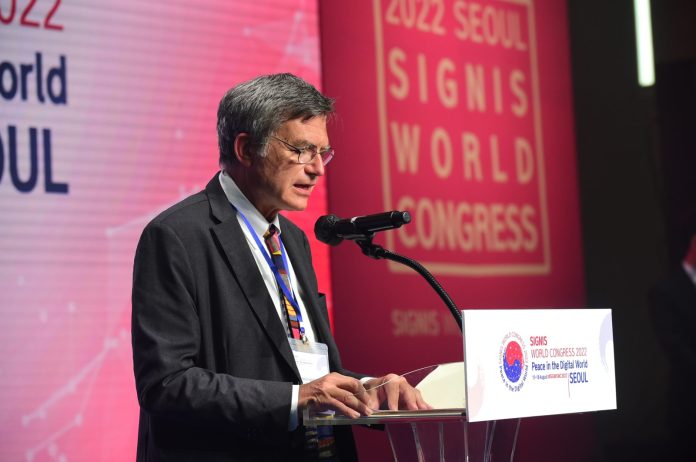The prefect of the Vatican’s Dicastery for Communication encouraged Catholic media professionals to “weave communion,” not only within the Church but among the human family.
“We need concrete experiences of sharing creativity in our mission. We have to connect people. And to weave communion among them. We have to invent new ways to do it,” said Dr. Paolo Ruffini. The Vatican official made the statement during the SIGNIS Board of Directors meeting in Bangkok, Thailand from November 25 to 29.
SIGNIS, or the World Catholic Association for Communication, is recognized by the Vatican as an International Association of the Faithful with the mission to “help transform cultures in the light of the Gospel by promoting human dignity, justice, and reconciliation.”
Drawing inspiration from the recent synodal assembly and its synthesis document, Ruffini underscored the significance of communication in the digital age.
“If the digital is real, communication must have real effects, interacting with people, not only by providing ideas and information but also by creating an environment conducive to fruitful relations,” he said.
He urged a “rediscovery of the mission” to connect through various forms of expression such as journalism, art, literature, and music.
He said, “The real resource that we lack is not information, but trust. An asset that is very difficult to acquire and very easy to lose!”
He encouraged the organization to be a guiding point in cultural debates, urging communicators to navigate the delicate balance between freedom and responsibility.
Ruffini stressed the need for “missionary creativity” grounded with love to address the broader challenges facing communicators.
“Perhaps, to be significant as a synodal Church, we must all die a little to ourselves, to our fears, and recognize ourselves as prodigal children returning to the Father to be free children,” he said.
Ruffini warned Catholic communicators against self-referential pride, emphasizing the need for openness: “Let no one’s door be closed to those who wish to enter.”
The Vatican official challenged media professionals to loosen the “structure of control” and allow younger people to navigate and introduce new ideas.
“Young people are not called to replace the elderly, but to do what we cannot imagine. Anything new is born overnight. But it is necessary to initiate processes. And to cultivate them,” he said.
“And while the seed of the new is being planted, it is necessary not to let the tree that generated that seed die,” he added.









